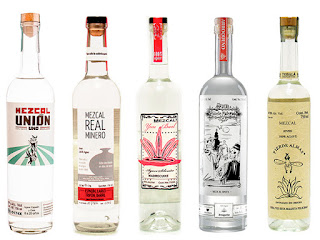This is a subject close to my heart because I've always loved
mezcal. It is one of those drinks with magic myths attached to it. But even
without the myths, Mezcal is a tasty drink. I always buy a bottle during
summer. -SJ Otto
From
Liquor.Com:
There’s much to learn about mezcal—so
much that even certified master mezcalier Josh Phillips admits he’s not even
remotely close to knowing everything. One notion he likes to squash as quickly
as possible, though, is the misconception that mezcal is tequila’s
smoky cousin. “We don’t carry many overtly smoky mezcals,” he says. “Instead,
we try to emphasize everything else that is going on in the category.” Smoke,
it turns out, is not its most interesting characteristic by a long shot.
“Mezcal is a product that is thousands of years old and made
across an entire country. Every year, we learn new things, and that is what
makes it exciting,” he says. To that end, the partner and general manager of Espita Mezcaleria in Washington, D.C., replicates for
his staff his master mezcalier training. While the official program, overseen
by the Mexican government, teaches denomination of origin, Phillips doesn’t
believe that paints the whole picture. His proprietary version certifies
“Espita mezcaliers” in three levels. To date, five staff members have completed
the entire program, while several others have finished the first or second
level.
Josh Phillips
Level one of the program focuses on the D.O. and legal
definition of mezcal. (The short version is that it’s an agave distillate from
regions in nine states in Mexico made from an approved list of agaves grown in
those states, bottled between 35 and 55 percent ABV in an approved pH range and
produced in a number of different approved styles.) It also covers how other
regional styles differ from it and ends with a written test. “Most of our
pre-shift meetings touch on topics this test covers, and we also have a written
primer that all staff members get upon hire so they can begin studying from day
one.”
The second level focuses on mezcal’s applications in the
culinary and cocktail world. During a blind tasting of varietally typical ones,
staff must identify five varietals or styles. “We’re not interested in
identifying a brand as those change constantly, but if someone can’t identify a
Tepextate versus a Mexicano versus a Tobala, they won’t move on in the
program,” says Phillips.
For more click
here.
Pix
from Serious Eats: Drinks.




No comments:
Post a Comment